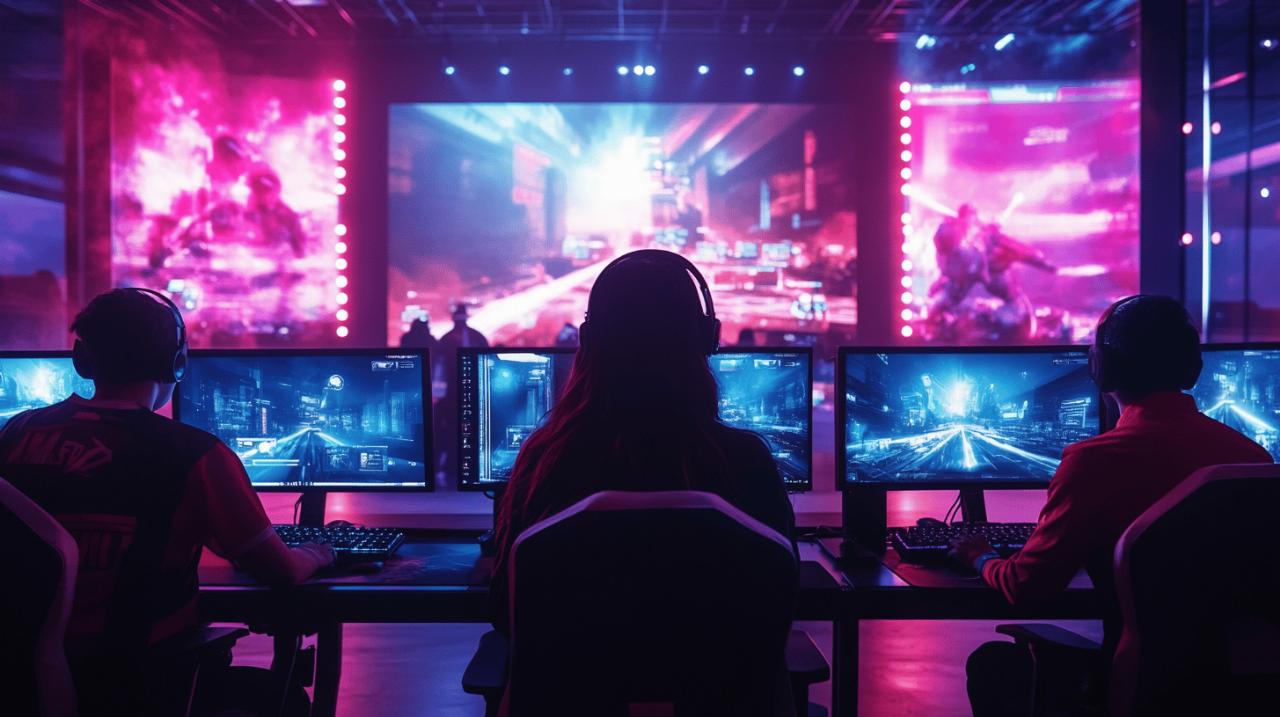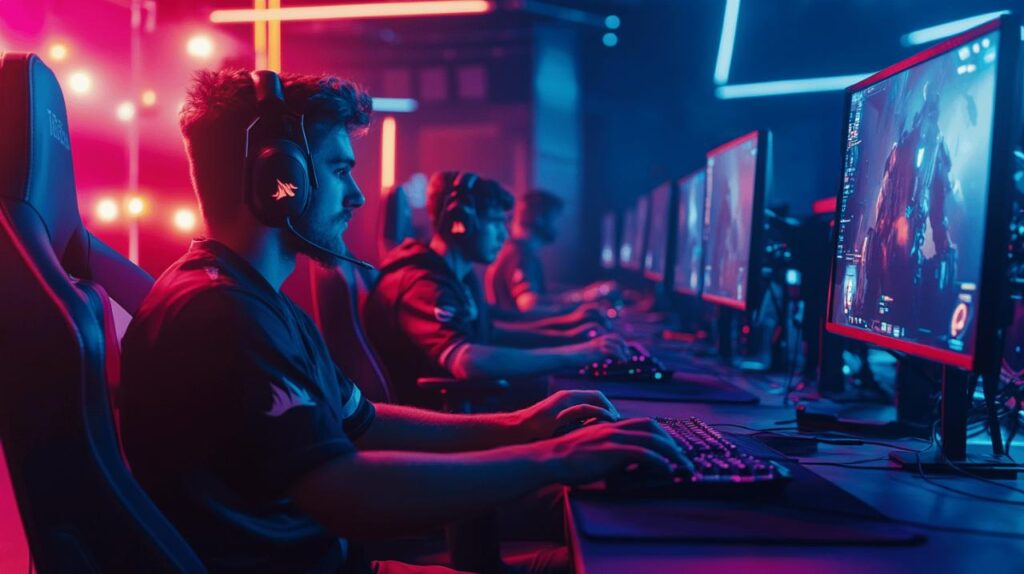The landscape of competitive gaming has undergone a remarkable transformation, with British players increasingly establishing themselves as formidable forces in some of the most demanding esports titles. As arenas fill and online audiences swell, the achievements of homegrown talent are capturing attention far beyond traditional gaming circles, marking a significant chapter in the evolution of electronic sports on these shores.
The Rise of British Talent in Competitive Counter-Strike
Counter-Strike has long been regarded as one of the most challenging and strategically complex titles in competitive gaming. Within this demanding environment, British players are steadily making their mark, demonstrating exceptional skill and tactical awareness that rivals the best in the world. The journey of these athletes from local competitions to international stages reflects not only individual determination but also the growing maturity of the esports ecosystem in the United Kingdom.
Uk players making waves in global counter-strike tournaments
Recent seasons have witnessed a surge of British talent competing at the highest echelons of Counter-Strike competition. Notably, prominent figures such as Alex and Mezii have secured positions with prestigious European organisations, including Fnatic and Vitality, two teams renowned for their competitive pedigree and international success. These signings underscore the recognition that British players now command respect on the global stage, their skills honed through years of dedication and rigorous competition.
The transition from domestic circuits to major international tournaments has not been without its challenges, yet these professionals have consistently proven their mettle. Their performances in high-stakes matches have showcased a blend of mechanical precision, strategic thinking, and mental resilience that defines elite competitors. The competitive environment demands not only quick reflexes but also the ability to adapt rapidly to evolving game dynamics, qualities that British players have demonstrated in abundance.
Training regimens and dedication behind britain's counter-strike success
Behind the impressive tournament results lies a rigorous commitment to training and self-improvement. Professional gamers in the United Kingdom now follow structured practice schedules that rival those of traditional athletes, dedicating countless hours to refining their skills, analysing opponents, and perfecting team coordination. This disciplined approach has become a hallmark of the modern esports professional, and British players have embraced it wholeheartedly.
The emphasis on physical and mental health has also gained prominence within the community. Awareness of common injuries associated with prolonged gaming sessions, such as repetitive strain and eye fatigue, has led to the adoption of preventive measures including regular breaks, physical exercise, and ergonomic equipment. This holistic approach to training ensures that competitors remain at peak performance while safeguarding their long-term wellbeing.
Rocket league: where uk professionals shine brightest
While Counter-Strike represents one pillar of British esports success, Rocket League has emerged as another title where UK professionals truly excel. The fusion of football and vehicular acrobatics has captivated audiences worldwide, and British players have established themselves as some of the most skilled and entertaining competitors in the scene. The recent Rocket League Championship Series event held in Birmingham highlighted the depth of talent and the fervent support that surrounds homegrown competitors.
British teams climbing the rocket league championship rankings
The competitive landscape of Rocket League features an array of international teams vying for supremacy, yet British squads have consistently punched above their weight. Events such as the RLCS in Birmingham, which attracted 16 teams competing for a prize pool exceeding two hundred and seventy thousand pounds, have provided a platform for UK players to showcase their abilities in front of passionate home crowds. The atmosphere at such events has been described as electric, with fans bringing a level of creativity and enthusiasm reminiscent of traditional sporting events.
Individual players have also risen to prominence, securing lucrative contracts and amassing significant prize winnings through their performances. The financial rewards available in professional Rocket League have transformed the title into a viable career path for talented individuals, with some earning tens of thousands of pounds through tournament success and sponsorship deals. This financial viability has further encouraged the next generation of aspiring professionals to pursue competitive gaming with serious intent.
The strategic brilliance defining uk rocket league gameplay
Success in Rocket League demands more than mechanical skill; it requires exceptional spatial awareness, split-second decision-making, and seamless team coordination. British players have developed a reputation for their strategic approach to the game, often employing innovative tactics that catch opponents off guard. The emphasis on teamwork and communication has become a defining characteristic of UK squads, setting them apart in a highly competitive field.
Interviews with professional players reveal the meticulous preparation that underpins their success. While some competitors acknowledge the energising effect of home crowds, others adopt strategies to maintain focus, such as using noise-cancelling headphones to block out distractions. The varying approaches reflect the individual preferences of players, yet all share a common commitment to excellence and a deep understanding of the game's intricacies.
Esports infrastructure and support fuelling uk success
 The achievements of British esports professionals cannot be attributed solely to individual talent; they are also the product of a rapidly maturing infrastructure that provides vital support and resources. Investment in training facilities, educational programmes, and organisational structures has created an environment where aspiring players can develop their skills and pursue professional careers with realistic expectations of success.
The achievements of British esports professionals cannot be attributed solely to individual talent; they are also the product of a rapidly maturing infrastructure that provides vital support and resources. Investment in training facilities, educational programmes, and organisational structures has created an environment where aspiring players can develop their skills and pursue professional careers with realistic expectations of success.
Investment in Gaming Facilities and Training Academies Across Britain
Recent years have seen a significant expansion in the availability of dedicated esports facilities across the United Kingdom. Gaming arenas equipped with state-of-the-art technology offer professional players the opportunity to train in optimal conditions, while also serving as venues for tournaments and community events. The establishment of training academies has formalised the pathway from amateur enthusiast to professional competitor, providing structured coaching and mentorship to emerging talent.
Organisations have recognised the importance of creating environments that support both performance and wellbeing. Modern facilities incorporate ergonomic seating, high-performance computing equipment, and spaces designed to facilitate team bonding and strategic discussion. This investment reflects a broader acknowledgement that esports, much like traditional sports, requires professional infrastructure to nurture talent and sustain competitive excellence.
Community and Organisational Backing for Aspiring British Pros
Beyond physical infrastructure, the growth of community and organisational support has been instrumental in fostering UK esports success. British Esports, for instance, has extended guidance to more than twenty-five thousand schools and colleges, introducing young people to competitive gaming and providing pathways for those who wish to pursue it seriously. This grassroots engagement ensures a steady pipeline of talent and helps to demystify esports as a legitimate career option.
Professional organisations and agencies have also played a crucial role in supporting players throughout their careers. The recent launch of a new division by Nivo, a London-based esports agency, exemplifies the expanding ecosystem of services available to competitors. From contract negotiation to brand partnerships and content creation opportunities, these agencies provide the professional scaffolding that allows players to focus on their performance while navigating the business aspects of their careers.
The Future of UK Esports: What Lies Ahead for British Gamers
As the esports industry continues its rapid evolution, the future appears bright for British competitors. The momentum generated by current successes, combined with ongoing investment and increasing mainstream acceptance, suggests that the United Kingdom will remain a significant force in competitive gaming for years to come. However, realising this potential will require continued effort from all stakeholders, including players, organisations, sponsors, and the broader gaming community.
Emerging Talent and the Next Generation of UK Esports Champions
The current generation of British esports professionals serves as inspiration for countless young players dreaming of following in their footsteps. Survey data indicating that a substantial proportion of Britons would prefer a career as a professional gamer over traditional sports stardom underscores the shifting perceptions surrounding competitive gaming. This cultural shift, combined with improved pathways and support structures, suggests that the next wave of talent will be even more formidable than the current cohort.
Identifying and nurturing emerging talent remains a priority for organisations across the sector. Scouting networks, youth academies, and educational initiatives all contribute to a comprehensive approach to talent development. The goal is not merely to produce successful individuals but to build a sustainable ecosystem where excellence is cultivated systematically and where diverse talents can flourish across multiple titles and platforms.
Potential olympic recognition and growing mainstream acceptance
One of the most significant developments on the horizon is the potential for esports to gain recognition from traditional sporting bodies, including discussions surrounding possible Olympic inclusion. While the path to such recognition remains complex and fraught with debate, the mere possibility reflects the growing legitimacy of competitive gaming as a discipline deserving of broader acknowledgement. International organisations have begun to take notice of the passion, skill, and dedication that define esports, prompting conversations about its place in the sporting landscape.
Mainstream acceptance extends beyond potential Olympic recognition. Media coverage has expanded, sponsors from diverse industries have entered the space, and public understanding of what it means to be a professional gamer has deepened. This shift in perception is crucial for the continued growth of the industry and for ensuring that British players receive the recognition and support they deserve. As barriers fall and opportunities multiply, the achievements of UK esports professionals will increasingly be celebrated alongside those of their counterparts in more traditional sporting arenas.







